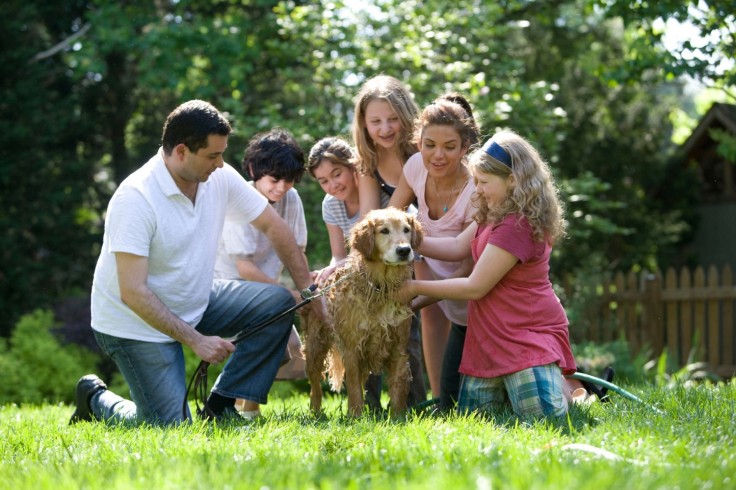
Around six in 10 Americans have a pet, with 73% of them opting for a dog and 49% for a cat. If you have always wanted your children to grow up alongside a dog, you are certainly not alone - and there is good reason for it. Dogs benefit children in many ways, with recent studies showing they can help them battle stress, keep asthma at bay, and even help them become more adept at reading. As is the case with all major life decisions, however, timing is everything. What considerations should you keep in mind in terms of bringing a new dog into your home?
Balancing Expenses
If you are thinking of starting a family or you already have children, then it is important to create a budget to analyze whether or not the timing is right for a new dog. The first year cost of a dog is over $1,000, says the ASPCA, owing to vaccinations and necessary preventive treatments for younger dogs. Annual expenses, meanwhile, run up to between $380 and $1,170 owing to factors like vaccinations, annual medical exams, and food. Many pet lovers also see to it that their pets enjoy additional nutritional boosts such as Omega-3 supplements, which are good for the heart and brain. Supplements to boost immunity and reduce inflammation are sometimes recommended for specific health conditions, as well as for senior dogs as a preventive approach to health and wellness.
Maturity Levels of Children
Some people already have pets when they bring a child into the world and somehow, dogs and babies seem to be a perfect match. In general, babies and toddlers can get along well with dogs but need constant supervision when they are in the presence of pets. A tug of the ear or of any other sensitive part of a dog's body can result in pain for your dog or worse yet, in injury for either a pet or child. Many families find the transition from a pet-only household to one with children perfectly seamless, and vice-versa. If you have children before bringing a dog into your home, let your child know how to treat a dog gently and respectfully, teaching them to 'read' dog body language so as to create a perfect synergy.
Investing Time in Your Dog
Temperament is everything when it comes to finding the perfect pooch for a home with small children. Calmer dogs are ideal since they tend to jump and pounce less but even a rambunctious pooch can easily be trained to avoid jumping on toddlers, stepping on toes, and the like. If your dog tends to get over-excited when family members get home or otherwise display difficulties respecting personal space, then behavioral classes prior to the birth of a baby will be helpful.
If you are thinking or having children or already expecting, you may have thought about getting a dog as well. Many families do the same and find that their dog is a protective, loving ally for their baby and other children. If you decide to take the plunge, make sure you have the budget for it and invest time if possible in your children and pets to prepare them for a new, beautiful relationship both will undoubtedly benefit from.